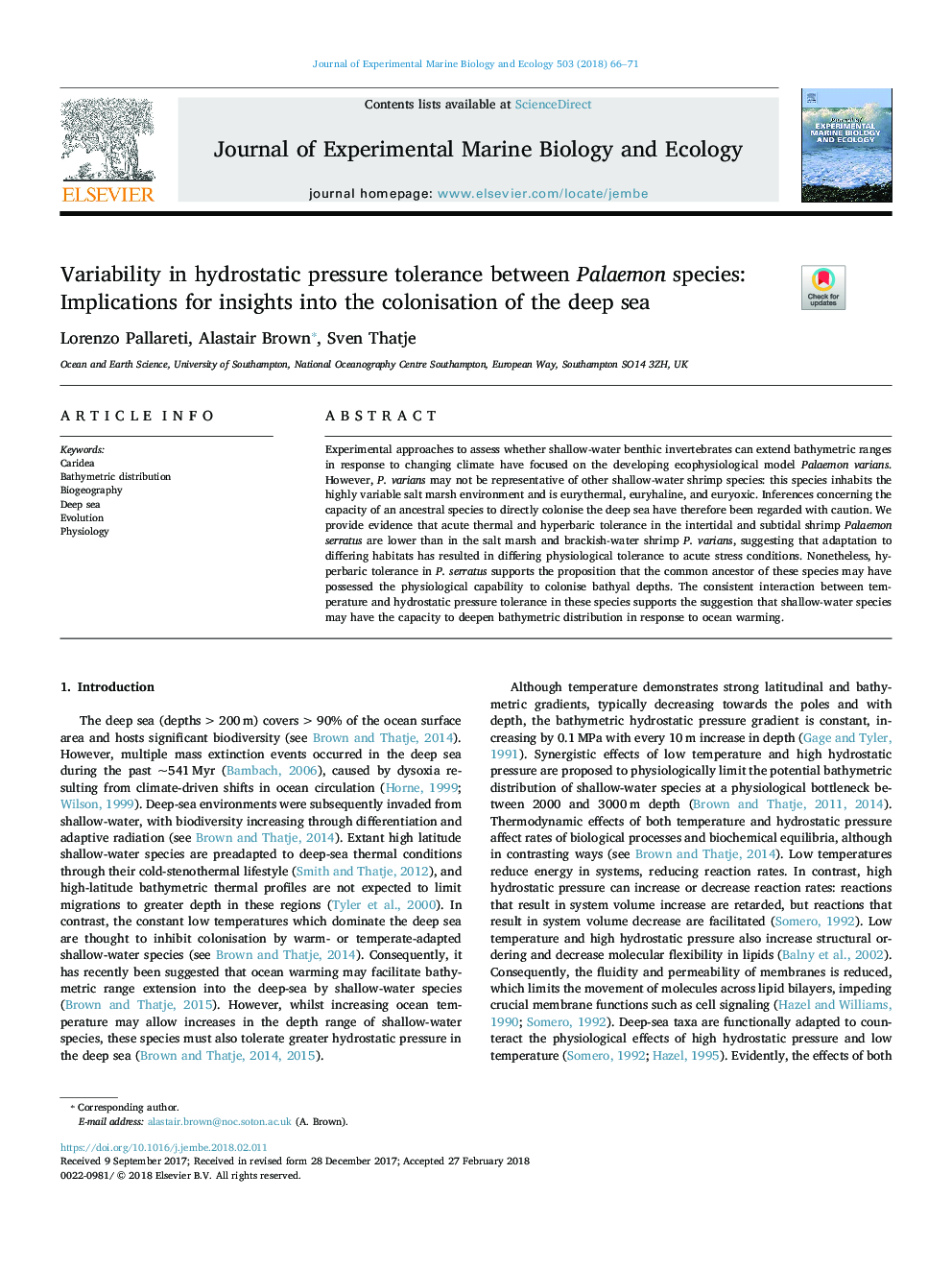| Article ID | Journal | Published Year | Pages | File Type |
|---|---|---|---|---|
| 8848927 | Journal of Experimental Marine Biology and Ecology | 2018 | 6 Pages |
Abstract
Experimental approaches to assess whether shallow-water benthic invertebrates can extend bathymetric ranges in response to changing climate have focused on the developing ecophysiological model Palaemon varians. However, P. varians may not be representative of other shallow-water shrimp species: this species inhabits the highly variable salt marsh environment and is eurythermal, euryhaline, and euryoxic. Inferences concerning the capacity of an ancestral species to directly colonise the deep sea have therefore been regarded with caution. We provide evidence that acute thermal and hyperbaric tolerance in the intertidal and subtidal shrimp Palaemon serratus are lower than in the salt marsh and brackish-water shrimp P. varians, suggesting that adaptation to differing habitats has resulted in differing physiological tolerance to acute stress conditions. Nonetheless, hyperbaric tolerance in P. serratus supports the proposition that the common ancestor of these species may have possessed the physiological capability to colonise bathyal depths. The consistent interaction between temperature and hydrostatic pressure tolerance in these species supports the suggestion that shallow-water species may have the capacity to deepen bathymetric distribution in response to ocean warming.
Related Topics
Life Sciences
Agricultural and Biological Sciences
Aquatic Science
Authors
Lorenzo Pallareti, Alastair Brown, Sven Thatje,
